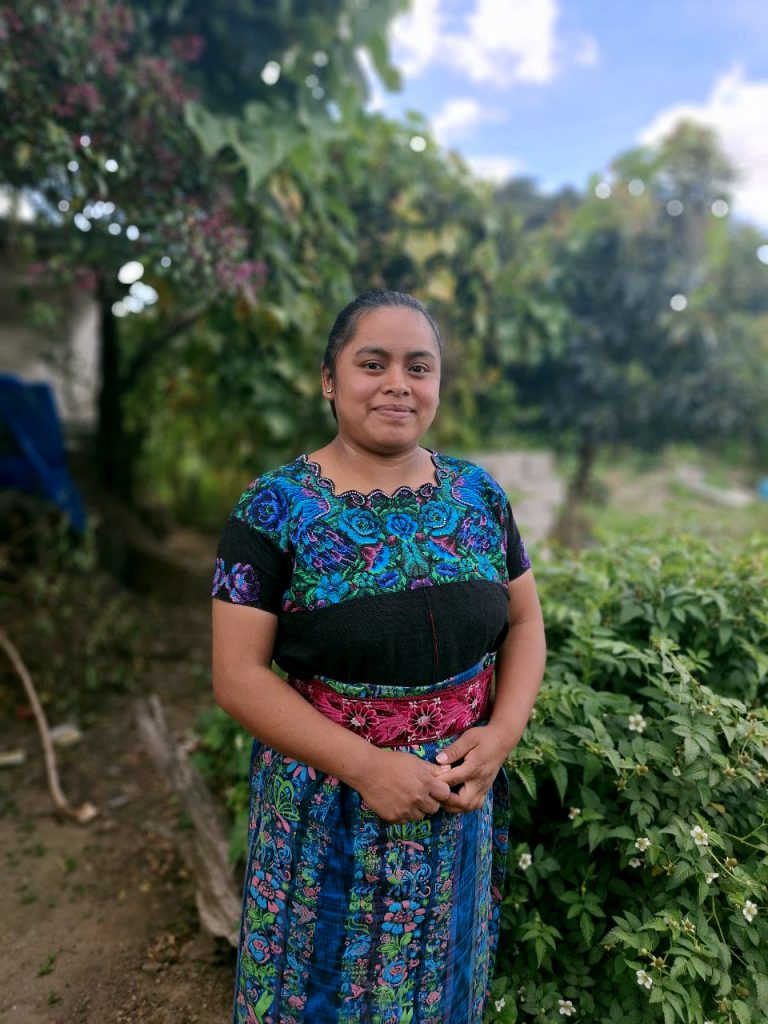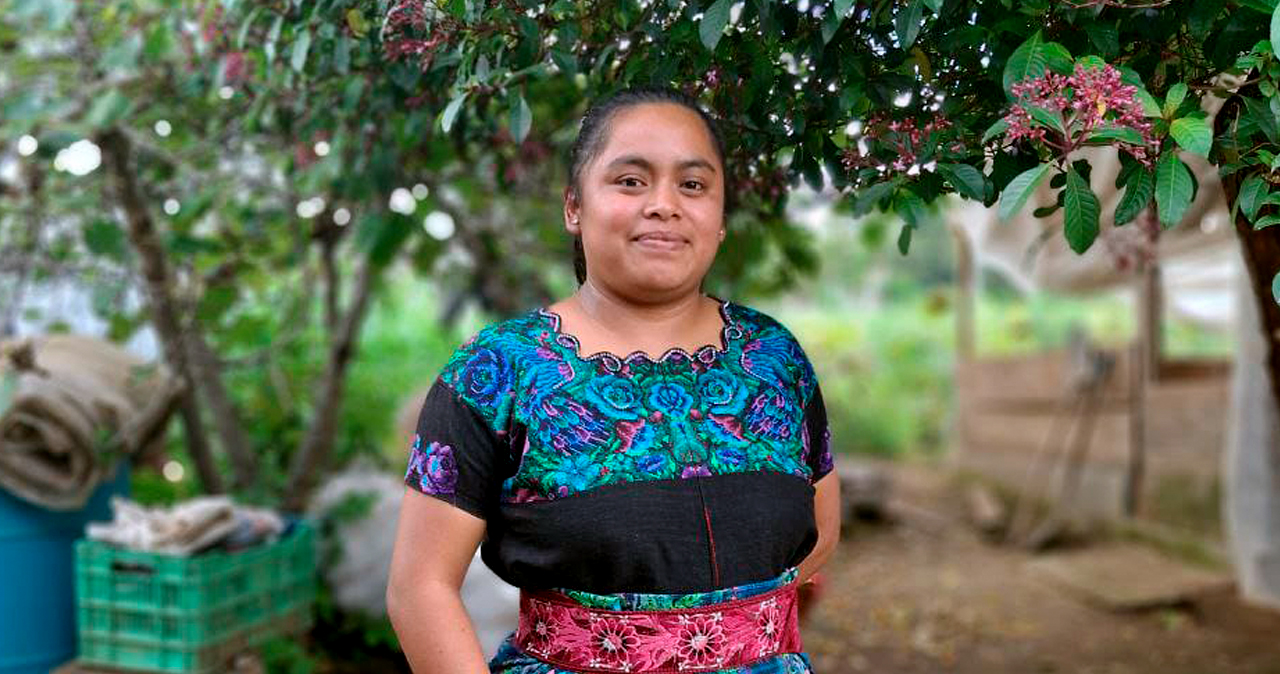Before receiving 45 hens, Margarita Mátzar had no extensive experience working with them. She knew of them, like everyone does, but the idea of raising them and becoming an egg producer wasn’t something she had ever imagined. At the time, she was working as a house cleaner. The opportunity to explore the unfamiliar world of laying hens came at a time when she was ready to change her life, and potentially at the same time change her community.
Margarita is one of the beneficiaries of the Resilience Through Egg Production Project (RTEP), an initiative led by EARTH Futures and funded by Cargill. The main goal of the project is to contribute to food security and income diversification for rural farming families. In its first year, the project has positively impacted over 70 women, providing them with new income opportunities, and more than 120 people have received training in sustainable egg production.
Since her involvement and technical training began, Margarita has achieved two goals envisioned by the RTEP project: selling her product to the school cafeteria system through a cooperative and supplying eggs to her community. “We wanted to experiment with the option of selling to the school when we were given the opportunity,” she says. This required further training to ensure egg size was standardized, a factor fundamental to this scheme. “They taught us everything needed to maintain a large size egg: proper feeding, hydration, weight, and a controlled environment for the hens.”
Pablo Chacón, Project Manager of EARTH Futures in Guatemala, commented that from the outset the project included schools as a fundamental part of its design. The goal was to create a family production model that, when combined with other production models within the community, would form an organized and sustainable business. “We sought to establish a profitable production model that would allow women to cover household expenses such as electricity and daily purchases, reinvest in their businesses, and simultaneously supply fresh eggs to public school systems. The aim was to improve student nutrition, strengthen the community-school bond, boost the local market, and empower women,” he explains.
The Challenge of RTEP in Sustainable Local Consumption
Raising awareness among school staff and parents about the importance of local consumption is perhaps one of RTEP’s biggest challenges. Although there is already a program in Guatemala that encourages schools to buy local products, many do not do so. This is due to a lack of producers who meet quality standards or act as consistent suppliers, something the project is making possible.
For the EARTH Futures team, sustainability can be achieved through community management platforms. Recently a trial was conducted with three cooperatives. One cooperative saw the potential of the initiative and decided to invest in new production modules. “Although promoting the idea as a community model has been a challenge, the cooperative that made the investment has seen the long-term opportunity and requested a training package for the new egg producers, showing their interest in continuing and expanding the effort,” adds Pablo.

Martha Elías was the first person from the Ministry of Education interested in expanding the project within the school system. Her previous role as head of the School Feeding Program in the Sololá province gave her the ability to see RTEP’s potential and support alliances between EARTH Futures and various educational centers. “From the beginning, I was interested not only because the program offered fresh eggs but also because it involved women producers and leaders,” says Martha. “Also, knowing about the care of the hens and that the eggs take only 10 days between laying and delivery to the schools was one of the reasons that motivated me to intervene and support RTEP. It is a high-quality and fresh product.”
Empowerment, Sustainability, and Results
From the start of the project design, RTEP focused on creating an egg production initiative with significant impact. It wasn’t just about providing hens and inputs, but about ensuring that the producers developed skills that would allow them to thrive with or without the project.
A notable achievement so far is that many beneficiaries have already acquired these skills. “They have become empowered, they understand the business and production model, and many are considering continuing with the project. This is reflected in their decision-making ability. This skills development is one of RTEP’s great achievements,” says Pablo.
Margarita’s story reflects this. Five months after her hens started producing, she decided to dedicate herself exclusively to this business. They can’t keep up with the egg sales, she says. Among her goals is to have more hens and build a second chicken coop at home.
